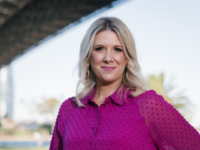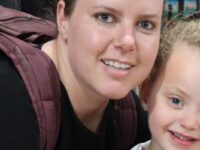Enterprise: Texcoco Collective
Green Credentials: A photographer’s travels to Mexico led to a discovery that is helping her address women’s empowerment, fast fashion, water waste, and animal cruelty all at once.
Texcoco Collective, founded in late 2020, is launching the first range of cactus-leather handbags available in Australia that are crafted by Mexican artisans. “I founded Texcoco Collective to be a voice for sustainable thinking and to share unique, high-quality designs with the ethos of nurturing the earth, and not contributing to harmful plastic production,” the business’s founder, Monique Montfroy, says.
Creating products that limit social and environmental impacts aligns with what Monique believes is a ‘moral responsibility’ to participate actively in moving toward a more eco-conscious society – a mission she aims to achieve through innovative design concepts, ethically sourced materials, and creative collaborations.
Monique started from a place of love for the environment and a passion for design, then a mixture of life events led her to founding Texcoco Collective. “I’ve always been deeply passionate about the human condition and caring for our natural world,” she explains. Monique worked as a documentary photographer after graduating with honours in photojournalism in 2015. This work took her to Mexico for a three-month artist residency program with an environmental non-government organisation in 2017. “I photographed, lived, and worked in far corners of the Gulf of Mexico,” she recalls. “Here, I witnessed firsthand the detrimental impacts of plastic waste and overconsumption on underdeveloped communities.”
In 2019, Monique travelled through Mexico again and then to Guatemala, where she helped a friend start a small volunteer-abroad company. However, while she was back in Australia to build the business, COVID-19 struck. The volunteer company crashed, she lost work as a freelance photographer and her casual hospitality job.
With time on her hands, Monique mulled over a leather handbag she had bought in Mexico. The vendor hadn’t been able to tell her who had made it and it troubled her that such beautiful bags were sold without acknowledging the craftsmanship of their makers. After seeing a video clip about a new vegan leather alternative two Mexican innovators made from prickly pear cactus, she formed the idea of making handbags using this new material. With the help of a Mexican friend, Salvador Milantoni, Monique collaborated with a family-owned-and-run handbag-manufacturing business in Guanajuato, central Mexico. “We pay a premium cost for the handbags and have continual communications about the conditions and workers’ compensation,” she says. “In 2022, I will travel to Mexico to visit and audit the factory.”
The brand’s mission is to bring awareness of local creativity and innovation to a wider audience, and to empower women by providing the ideal bag for them. Texcoco is also addressing overconsumption, fast fashion, water waste, and animal cruelty.
“We have been using and abusing the earth’s precious resources recklessly for too long,” Monique bemoans. “In an attempt to combat these issues, we use cactus leather, a new vegan leather material. The cactus plant is grown on a totally organic farm, they use no herbicides or pesticides. Cactus captures CO2 while generating oxygen and absorbing water at the same time, meaning there is no need for irrigation systems.”
Sustainability is paramount to Monique, and underpins each aspect of the business – from admin to manufacturing. “Aside from the product, everything I do is online and I work from home, meaning no paper usage and no extra costs on electricity or driving,” she says. “Packaging is an important part of having an eCommerce business – our bags are presented in reusable dust bags and all the packaging we use is recyclable or compostable.”
Texcoco has partnered with One Tree Planted, a non-profit organisation dedicated to global reforestation, and ultimately Monique plans to move to a social-enterprise model and become a B Corp-certified business, to solidify her social and environmental stance and balance profit with purpose.
This article first appeared in issue 35 of the Inside Small Business quarterly magazine
















